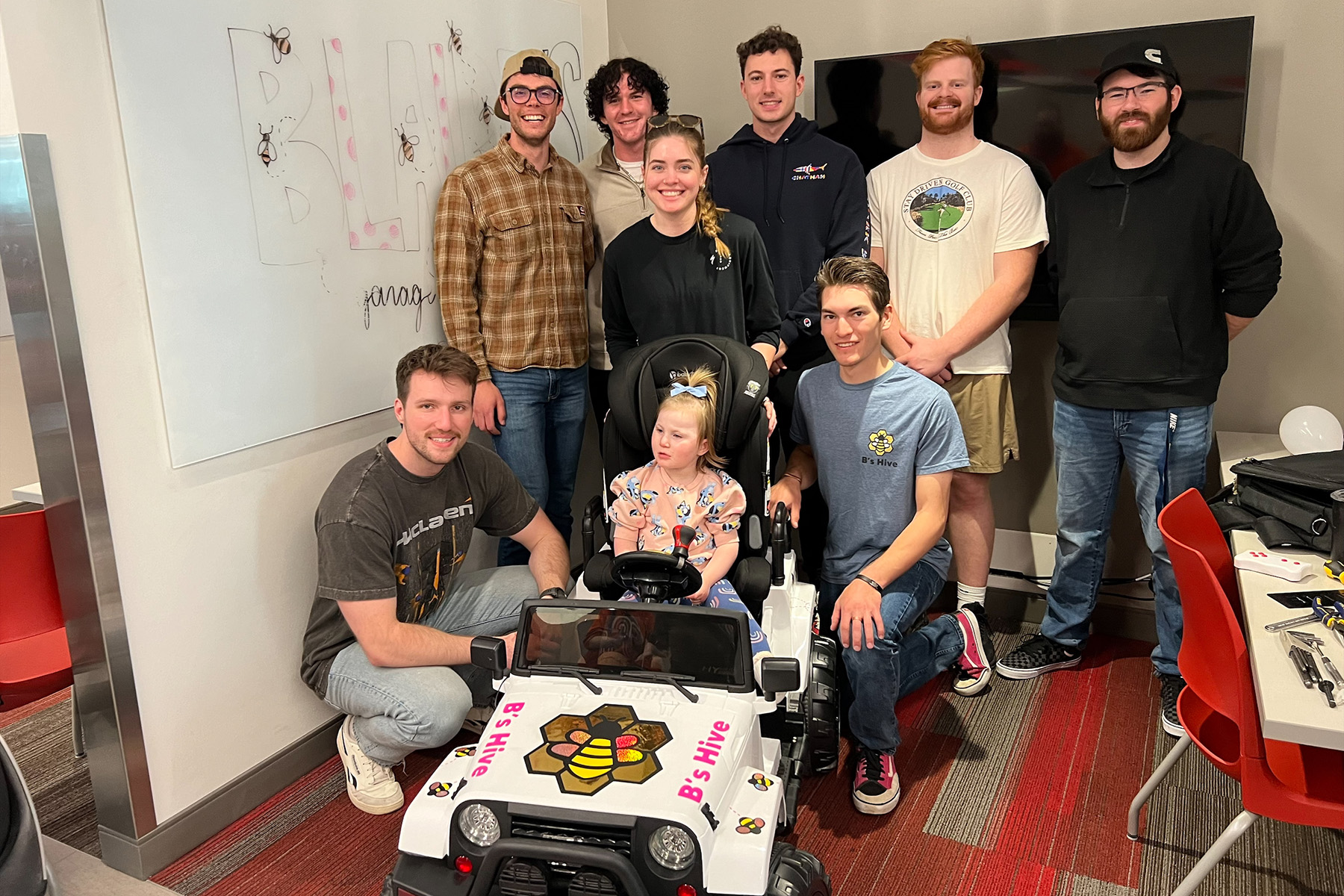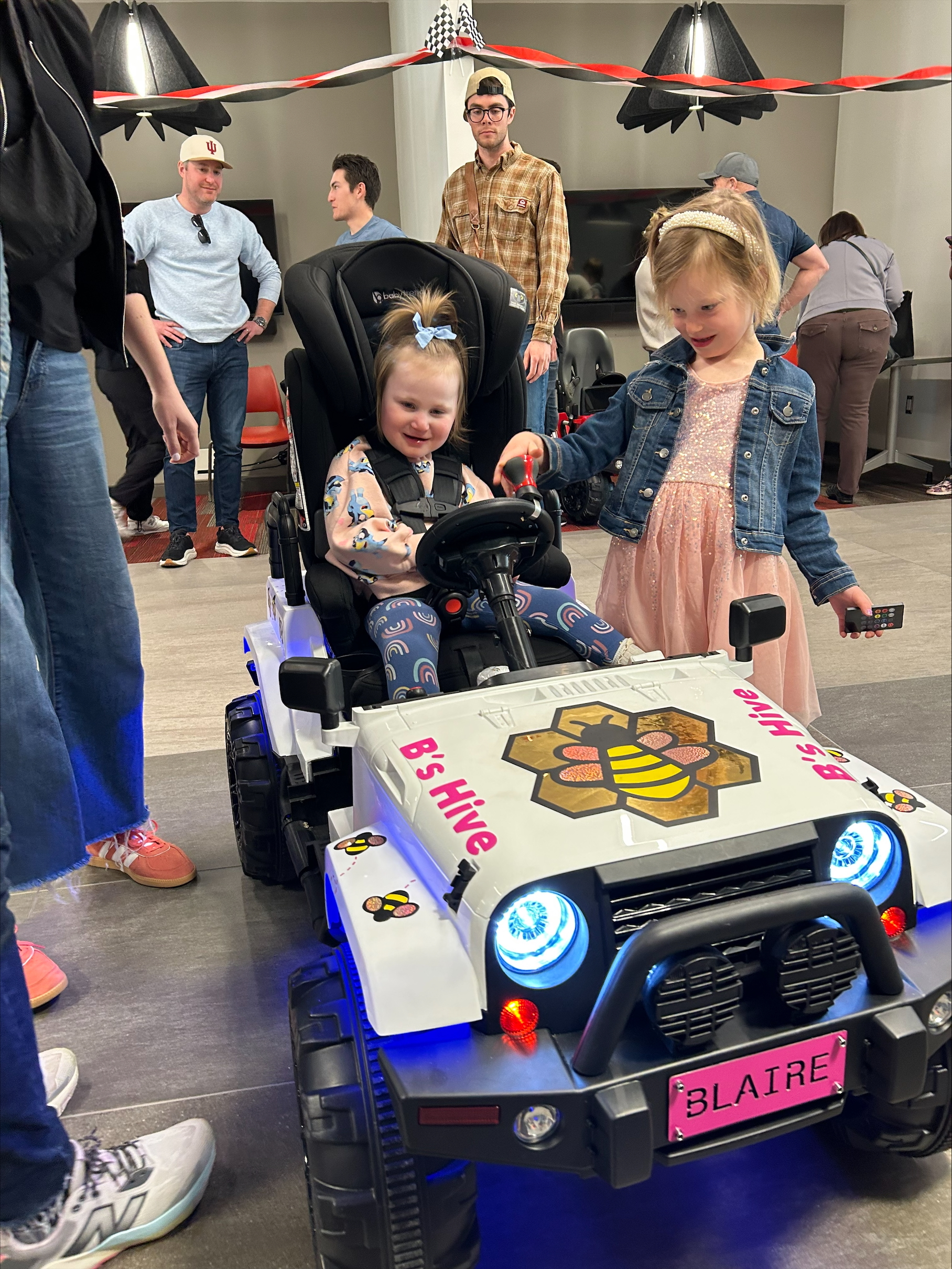Go Baby Go! Purdue engineers create custom power-wheel car for child with rare disorder
Go Baby Go! Purdue engineers create custom power-wheel car for child with rare disorder

“Delivering the final car to Blaire and her family was truly life-changing,” said Lucas Stierwalt, a Purdue mechanical engineering student in Indianapolis. “Seeing the direct impact of our work made every late night and challenge along the way worth it.”
GoBabyGo is a country-wide program that began in 2012 at the University of Delaware. In 2015, Sara Davis, adjunct professor of physical therapy at IU Indianapolis, brought the program to Indy. The overarching goal of this program is to provide children with developmental delays greater access to the community around them while also doubling as a form of physical therapy.
“Some kids take the cars to school and some just use them in their neighborhood — it’s dependent on the individual needs of the child,” said Davis.
Toyota Material Handling is a partner of the program, providing the cars and assisting the students with manufacturing, wiring, and other technical expertise. Each semester the physical therapy program donates one of the cars to a Purdue Engineering senior capstone class. This year, Purdue mechanical engineers created a car for a child named Blaire. Blaire has Rett Syndrome, a rare neurodevelopmental disorder that impacts her growth, development, mobility, and speech. Their goal was to create a car that they could adapt as her needs change over time.
At the beginning of the semester, students met with Blaire and her family to gather measurements and figure out what goals the car needs to accomplish. For Blaire, the car needs to accommodate her limited mobility but also be easily adjustable as her disorder progresses. With the help of a few physical therapy students, the engineers made sure the car hit her physical therapy goals too.
Some of the modifications done to Blaire’s car include adding a larger seat, adjustable seat sliders, setting up a wiring harness, and adding an accelerator button on the steering wheel instead of the pedal. The group had the opportunity to create a lot of custom parts, getting to design, model and print an adjustable steering wheel shaft. They even had to cut the car in half to add the frame extension which Toyota manufactured.
“We also added LED lights, a soundbox that had the Bluey theme song on it, and two of our group members who were also majoring in graphic design created all of the decals on the car,” said Tanner Tomlinson, a Purdue mechanical engineering student in Indianapolis. “We were even able to add a QR code on the back of the car that takes you to the fundraising site Blaire’s parents created, that sells merchandise and funds Rett Syndrome research.

While students work on the car throughout the entire semester, there is one day they are working toward: play day.
“Play day is a really fun day,” said Davis. “The cars are presented to the families and students walk them through the modifications they made, showing them how to drive the car and making any last minute changes. Once in the car, the kids get the full driving experience! We set up an entire racecourse for them to drive on as well as an interactive gas station and car wash.”
“Watching Blaire light up with excitement as she cruises around in her car has been such a joy,” said Nola Renner, Blaire’s mother. “It’s given her a sense of independence and freedom that’s so special at this age - just feeling the wind in her hair and having fun outside. It’s more than just a toy; it’s an experience every child should have access to. We’re so grateful for the GoBabyGo program that makes playtime both accessible and empowering.”
Play day is a day where students get to see all their hard work pay off. This project had a multidisciplinary impact. It gave children a new sense of independence and joy, while also providing engineers the chance to tackle a unique and meaningful project they might not otherwise encounter.
“On play day we were all discussing how lucky we were to have this opportunity,” said Tomlinson. “It was so rewarding to see Blaire’s smile when she was in the car.”
“The GoBabyGo project was one of the most hands-on and rewarding experiences of our senior year,” said Stierwalt. “While many capstone projects are centered around research, ours had a direct and personal impact.”
Writer: Julia Davis, juliadavis@purdue.edu
